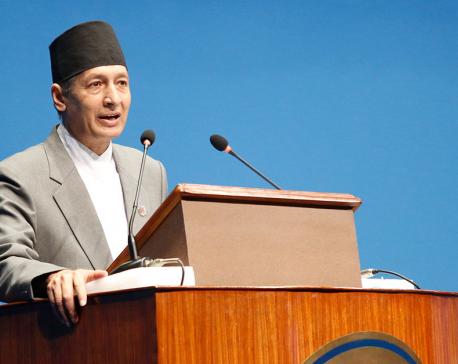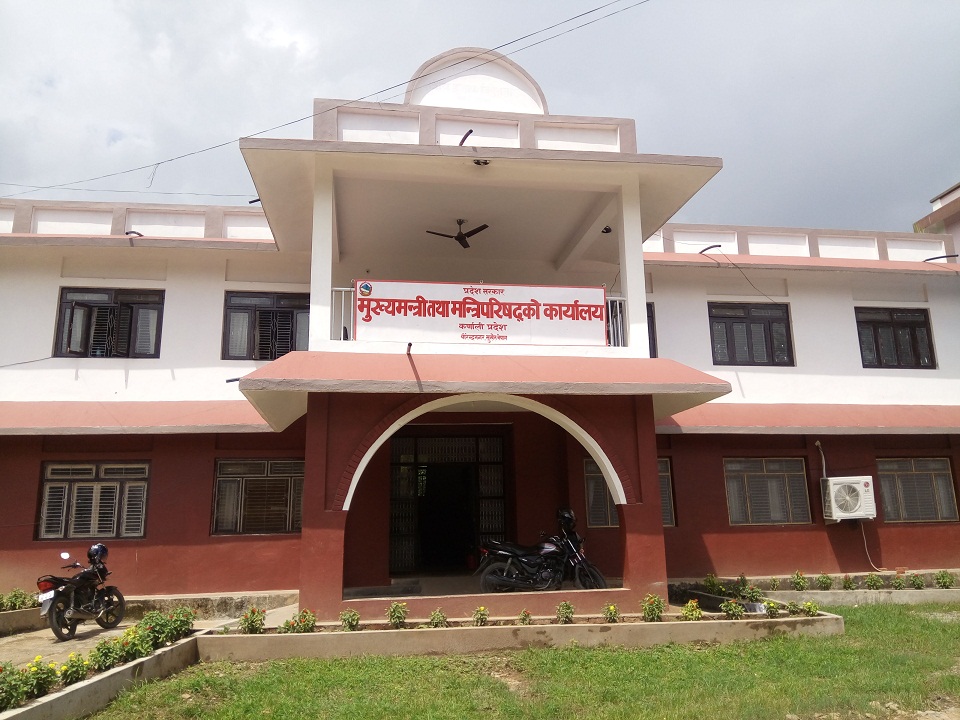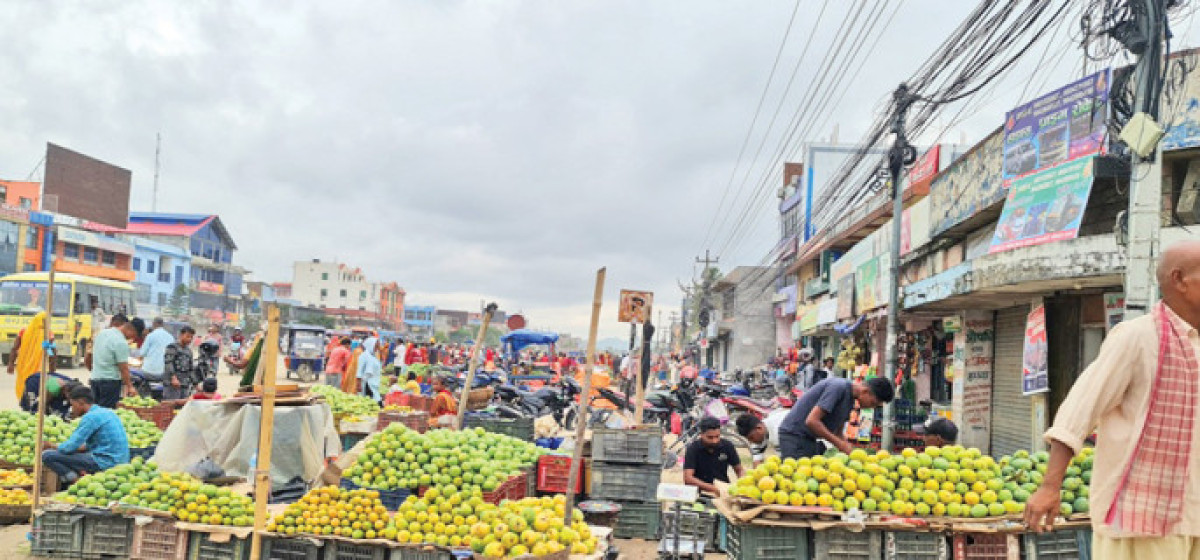
OR
Analysis of Budget and Programs 2019/2020
Govt plan to be self-reliant in agriculture by July 2021 disappears in budget
Published On: June 2, 2019 10:49 AM NPT By: Rudra Pangeni | @rudrapang
Plan was to double agriculture output by 2023
KATHMANDU, June 2: In last year’s budget and programs, Finance Minister Yuba Raj Khatiwada had made an ambitious announcement that the country will be self-reliant in agricultural production by Fiscal Year 2020/2021. He had further announced that the country will double agro produce by the end of Fiscal Year 2022/23.
However, this plan disappeared in the budget and programs for the upcoming fiscal year that was unveiled on Wednesday.
This kind of policy inconsistency does not bear well for a two-thirds majority government, according to experts. They are dismayed to see that the government left out its own plan of increasing agriculture output.
They say such inconsistency is indication that the stable government, which came after decades, is not serious about generating employment, curbing rising trade deficit resulting from import of agriculture products, and alleviating poverty.
A high economic growth, which largely depends on agriculture output, is the sole target of the government as per its statements and polices. But it has failed to hinge on its elements basically to retain the growth.
GDP growth is projected to grow by 6.81 percent this year, mainly driven by growth of the agriculture by 5.02 percent owing to better crop yield contributed by favorable monsoon. An increment in agricultural production is expected to be a major factor for curbing the widening trade deficit, and reducing it in the long run.
Agricultural experts claim that the government and its agencies have not hired experts and other human resources as needed to provide support to the farmers in order to increase output.
The government plan was viewed as being aimed at generating more employment for youths who are forced to fly abroad for unskilled labor, apart from increasing investment in the agricultural sector to alleviate poverty.
Bhairab Raj Kaini, columnist on agricultural issues and former director general of the Department of Agriculture, was not impressed with the stable government’s backtracking from one of its major plans.
“I see that the government is confused about framing and implementing programs in the new federal set up,” Kaini said, adding that it should have focused on service delivery from municipalities and rural municipalities to provide support to the farmers on technology and knowledge.
Like in the case of past governments, fiscal policies are not aligned with the five-year periodic plan and vice versa, Kaini commented.
The government has set up 51 Agriculture Knowledge Center (AKC) across the country in place of previous 75 District Agriculture Offices and has deputed manpower at the service centers under AKC.
Experts have suggested that the government should come up with strong programs to provide irrigation facility to farmers and lower their dependency on monsoon alone.
“Like past governments, this government has also taken agriculture for granted and forgotten it. It is a science-based sector and it needs experts. But the government is not yet in consultation with the experts,” added Kaini.
Bhola Man Singh Basnet, paddy expert and a retired government officer, also echoed Kaini. Basnet claimed that agriculture experts were not given due recognition in the sector. This fact, according to him, was the reason behind failure to achieve agricultural potential of the country.
Talking to Republica, Basnet said that the change of plans meant the government was not confident about it.
“Massively increasing agricultural output is possible, but it needs big intervention with knowledge transfer. We need to first train agriculture officers deputed to the rural areas and equip them with practical knowledge so that they can guide farmers for increasing production from the day of selecting seeds to harvesting,” added Basnet.
The country is importing rice and paddy worth Rs 25 billion per annum in the recent years.
“Again the important thing we need to do is sending technical hands with sound knowledge to help farmers and give importance on the experts like in any other sector,” added Basnet.
Basnet also pointed out some policy contradictions behind the country’s failure to increase production. “We can either choose to grow production as envisioned by the government, or go fully organic. We can choose only one, not both.”
The budget for the Prime Minister Agriculture Modernization Program, a flagship program of the current government, however has increased the budget by about 70 percent to Rs 8.10 billion for the next fiscal year. But the kind of program run by the federal government won’t make change if anything substantial is done to provide technical knowledge and support to the farmers, said Kaini.
You May Like This

Nepal is self-reliant in egg, milk powder, butter and meat: Govt
KATHMANDU, March 26: The government has claimed that Nepal has become self-reliant in a number of farm products including egg, milk... Read More...

Finance minister meets top officials over Nepal Leaks report
KATHMANDU, Jan 19: Finance Minister Yuba Raj Khatiwada on Friday held an internal meeting concerning the money laundering exposed by... Read More...

Central govt under double stress: Finance minister
KATHMANDU, Sept 19: Minister for Finance Yuba Raj Khatiwada has said that the central government is going to be under... Read More...


Just In
- 70 community and national forests affected by fire in Parbat till Wednesday
- NEPSE loses 3.24 points, while daily turnover inclines to Rs 2.36 billion
- Pak Embassy awards scholarships to 180 Nepali students
- President Paudel approves mobilization of army personnel for by-elections security
- Bhajang and Ilam by-elections: 69 polling stations classified as ‘highly sensitive’
- Karnali CM Kandel secures vote of confidence
- National Youth Scientists Conference to be organized in Surkhet
- Rautahat traders call for extended night market hours amid summer heat

















Leave A Comment